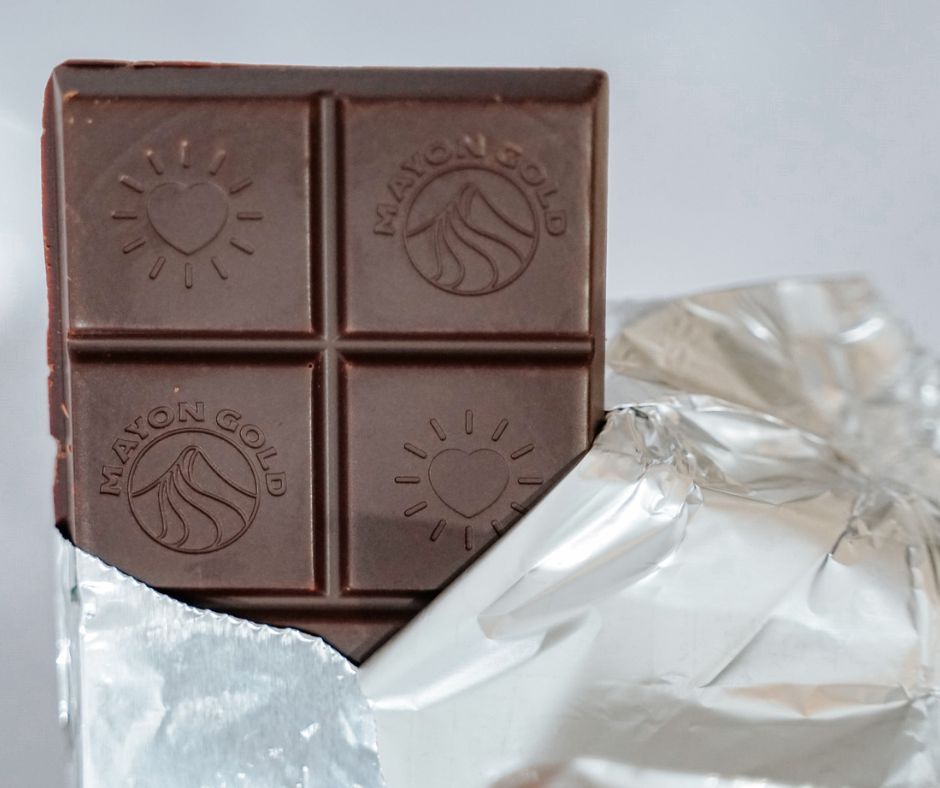
On the slopes of Mt. Mayon, an active volcano in the Bicol region of the Philippines, farmers have discovered a different kind of gold that has been there for centuries—cacao. Naturally growing in Mayon’s volcanic soil, these trees have been producing pods now processed into dark chocolate bars, a prized delicacy in the province.
Behind this project is retired Australian businessman Robert “Bob” Murray and his Muravah Foundation.
Murray has established a chocolate factory on a two-hectare property along the new Camalig diversion road, right beside the dike that protects Barangay Sua, Camalig, Albay, from floods and lahar from Mt. Mayon. Murray started Muravah almost two decades ago in the slums of Manila, helping impoverished Filipinos by providing food to families and educational support to students.
He realized then that many of the slum dwellers were from the province, specifically Bicol, and decided to go to the source of poverty. He began assisting the community of Sua by providing livelihood to its people.

“Our ultimate goal at Muravah Foundation is to bring rural communities in the Philippines out of poverty for good. Rather than just providing financial aid to these communities, we provide the resources and support to help create deep-rooted, sustainable, generational change,” Murray said.
Choosing cacao was easy for Murray as it is endemic to the areas surrounding Mayon. The fertile soil, rolling terrain, and tropical weather make the area ideal for cacao cultivation. Soon, Murray and his foundation were buying cacao pods from the farmers and processing them into dark chocolate bars, eventually marketed as Mayon Gold.
According to Allan Aguilar, production manager of Mayon Gold, they buy the pods directly from the cacao growers. “We have vehicles that go to their locations to purchase the harvest every day. We pay higher prices compared to traders because we want the farmers to benefit more from the production of Mayon Gold,” says Aguilar.
Due to the perfect conditions of the area’s volcanic soil, cacao trees have been growing in the Mount Mayon region for hundreds of years. They were able to produce seedlings that were co-planted with existing coconut trees.

The Muravah Foundation purchases all resulting harvests, thereby increasing farmer income up to four times their usual coconut harvests. This means enough revenue to lift the majority of their partner farmers above the poverty line.
Today, there are more than 30,000 trees and over 500 small growers. Muravah’s chocolate processing plant employs local workers from poverty-stricken farming communities in the Mount Mayon region, making them active participants in the chocolate industry in the Philippines.
Mayon Gold is now being sold in key areas of Bicol, especially at the new international airport in Daraga, where sellers are excited about its high quality.
Murray said all of the profits from the chocolate factory set up in Camalig, Albay, go back to the farmers.
“I have realized that if you give a person chocolate, you only make him happy for a day. But if you teach him how to plant cacao and make chocolate, you make him and his family happy for a lifetime.”